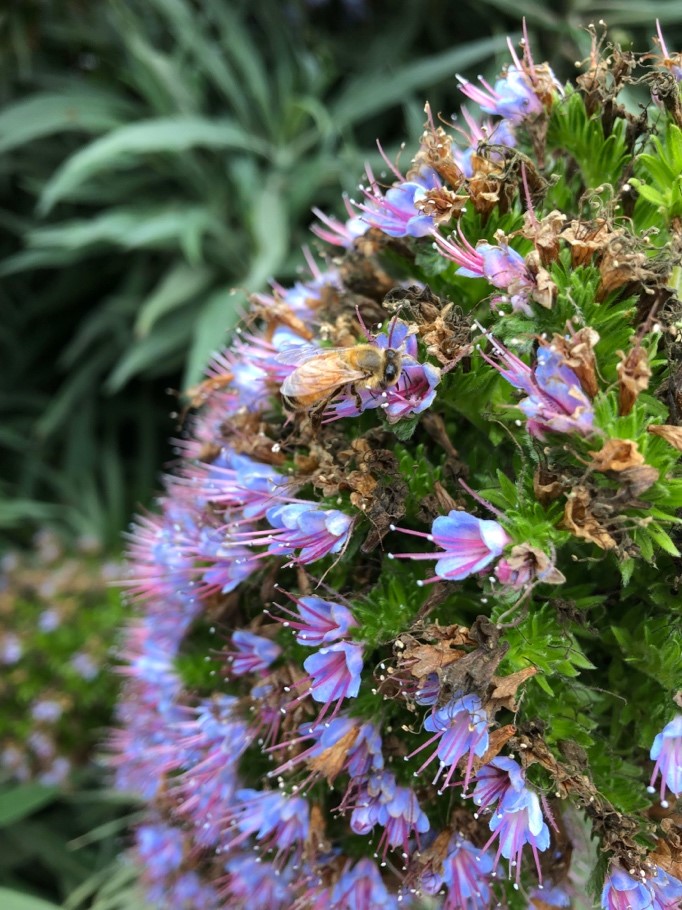
Are you passionate about molecular ecology? Interested in learning about bioinformatics? Join our team working on a pan-European standardized framework for processing plant DNA metabarcoding data and make an impact on this rapidly growing field.

Apis mellifera visiting Echium candicans
Backgroundand context
DNA metabarcoding is the future of biodiversity monitoring. Despite its growing relevance as a scalable means of characterizing biological communities, there is no single standardized approach used to process metabarcoding data. Methodological gaps have rendered many datasets unsuitable for intercomparison, limiting our ability to mobilize this data for effective biodiversity monitoring.
While we know that the bioinformatics approach used impacts the composition of the final dataset, we do not know the degree to which this effects species detection rates, nor estimates of alpha and beta diversity. Understanding these gaps between bioinformatics approaches is key to developing a single standardized method of processing metabarcoding data.
Objectivesand goals
The main objective of this project is to characterize how different bioinformatics approaches impact the size and composition of plant metabarcoding datasets.
Materialsand methods
You will use existing metabarcoding libraries and data processing pipelines to complete paired sample analyses, testing for differences in species detection rates and community-level attributes.

The plant-pollinator interface, mapped using multi-locus pollen metabarcoding
Studentrequirements
We are looking to find a student with an interest in plant DNA metabarcoding and community ecology. Experience in statistical analyses is required. An affinity with bioinformatics and coding is ideal, but not required.